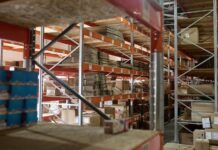As a sub-sector of the Turkish textile industry, which is the second-largest supplier to the EU and the fourth-largest supplier globally, the Turkish home textile industry is now able to fulfill the demanding requirements of all sophisticated customers and plays an important part in global commerce.
Towels, bed sheets, curtains, bed spreads, tulle, curtain fabrics, table linens, upholstery fabrics, blankets, lace, pillows, quilts, cushions, eiderdowns, and other home textiles may all be made in Turkey and ranked according to export value.
With its vast array of goods and exceptional quality in home textile manufacturing, particularly in the manufacture of towels, bed sheets and covers, curtains, tulle, embroidery, guipure, and quilt covers, the Turkish home textile industry is among the top in the world. The world’s biggest machine park for producing guipure and embroidery is located in Turkey. Turkey is home to the biggest quilt cover manufacturing in Europe. The home textile sector in Turkey has also benefited from the most recent technological advancements, a highly trained labor pool, and design and fashion skills. Furthermore, the sector has raised the caliber of its output while bringing down manufacturing costs below the global average. Therefore, Turkey was among the top three suppliers in the world in 2007 for both bed linens and towels as well as tulle and curtains due to its enormous manufacturing capacity, excellent quality, and fierce competition. Similarly, in 2007 Turkey ranked second in terms of bed linens and curtains and top supplier to the EU in terms of tulle and towels.
Turkey has a long history in the towel industry, and its products are regarded as Turkish Towels internationally. In terms of jacquard and embroidery technology, the Turkish towel industry is competitive in global markets today. Originally a Turkish handcraft, lace is now widely employed in numerous textile applications, particularly in household textiles. Turkish women’s labor was the pinnacle of this needlework technique, which dates back to the middle of the fifteenth century. It is a remarkable handcraft with a classic aesthetic and patterns in various hues and lines that are mirrored in contemporary home décor.
The main Turkish cities with factories producing home textiles include Istanbul, Denizli, Bursa, Tekirdağ, İzmir, Gaziantep, Kayseri, and Uşak. manufacturers of blankets are centered in Uşak, manufacturers of voiles in İstanbul and Bursa, and producers of towels and bathrobes in Denizli and Bursa. To achieve the highest quality at every level of manufacturing, many of the companies in these towns have integrated their processes, from the creation of yarn and fabric to the design, dyeing, finishing, and stitching of their products.
Turkey and the world over, Denizli is the core of the towel industry’s manufacture. The towel industry is the main industry in this city. Bathrobes and cotton towels are produced by 187 businesses. This local manufacturing plant focused on a single product category is a great example of cluster development and a success story. The finest cotton in the world, Aegean cotton, is used to make bathrobes and towels in Denizli. The world is widely aware of these bathrobes and towels for their exceptional warmth, absorbency, and softness. These exceptional qualities of towels and bathrobes come from their amazing pile thickness and density. Furthermore, in contrast to regular items, these bathrobes and towels become softer and more absorbent the more times they are cleaned. Due to this, Denizli alone accounts for a significant portion of global exports of bathrobes and cotton towels. Approximately 90% of these goods are shipped worldwide. Turkish bathrobes and towels, particularly those from Denizli, are not only used in households but are also displayed as a mark of excellent service by five- and four-star hotels worldwide. Additionally, guests at these hotels would see it as a drawback in the services provided if Turkish towels and bathrobes were not provided in the saunas, hamams, sports centers, and restrooms.
Specializing in the production of curtains, upholstery and curtaining fabrics, decorative fabrics, bedding items, towels, bathrobes, and other textiles, Bursa is one of the world’s leading textile manufacturing cities. In Bursa, there are hundreds of businesses engaged in the production and sale of various textiles. Many of these businesses are quite well-organized, and they soon join together to form the “Bursa International Textile and Shopping Centre,” often known as Buttim. There are around 850 textile businesses in Buttim, the majority of which work in the upholstery, curtaining, and home textile industries. Approximately 320 showrooms in Buttim showcase a wide variety of home textiles and textile items to thousands of domestic and international tourists. Buttim is such a large center that it can accommodate 20,000 visitors each day. Thus, travelers from outside who are searching for a premium and extensive selection of textiles, curtains, furnishing materials, and the like, should not return home without first visiting Buttim.
In addition to major corporations, small and medium-sized businesses are widely dispersed across the nation. Traditional fabrics are still widely produced in the rural regions around select towns, such as Denizli, Muğla, and Kastamonu. Recently, these fabrics have been employed to produce house textiles. The Buldan Fabric, from the Buldan region of Denizli, is one of these classic textiles that is well-known around the globe. Because it is woven on traditional hand looms, its distinctive patterns bring the legacy of the past into the present. Because it is composed entirely of cotton, this fabric has a very natural appearance and is a staple of both classic and contemporary home décor. Selalmaz Çemberi is another traditional cloth that gets its name from the Kastamonu area of Selalmaz. This fabric is also made on hand looms using yarn that is 100% pure cotton. It’s a tulle-like, very thin fabric. Weaving this cloth is so hard that one can only weave one meter in a day. Its exceptional uniqueness makes it a popular material for both garments and home décor. Another well-known cloth made in the Kastamonu village of Azdavay is called Azdavay Çemberi. It is also a highly unique hand-woven cloth, composed of pure cotton or linen. This fabric is woven loosely or densely, just as Selalmaz Çemberi. It’s commonly utilized in apparel manufacturing and home décor. These classic textiles are ecologically beneficial since they are fully natural, created entirely of linen or cotton without the use of artificial colors. Consequently, there is a sizable market for home textiles manufactured of these materials abroad.
Today’s Turkish home textile sector swiftly adjusts to changes in technical and regulatory requirements because it recognizes the trend in global markets toward a growing demand for healthier and more environmentally friendly goods. The industry has a large number of manufacturers that can create environmental and quality management systems, such as the ISO 9000 series. Furthermore, a few home textile enterprises have their own private eco-labels.
In a world that is changing quickly, the home décor industry is quite adaptable to any changes. Because of this, collections with cutting-edge and contemporary patterns and designs are crucial, in addition to the high quality of the goods themselves. Turkish producers of home textiles are well aware of fashion design and creation, which helps them stand out in global marketplaces. Turkish designers always stay abreast of global trends in home décor while producing fresh, contemporary designs and distinctive themes that appeal to a wide range of interests and preferences.
Exports
In addition to satisfying local demand, Turkey’s home textile industry contributes significantly to the nation’s export revenue due to its broad product offering, exceptional quality, and significant export market potential. Of the sector’s output, 60% is exported. With a 4% share and a value of US$ 1.9 billion in domestic textile exports in 2007, Turkey ranked as the fourth-largest exporter, according to data from the International Trade Center (ITC).
Turkey’s stylish items, high-tech manufacturing, and high-quality output have helped it gain market share in the major markets, particularly in Europe. As a result, well-known international suppliers have begun to work with Turkish producers to produce home textiles together.
The most significant markets for Turkey’s domestic textile exports are the European Union. Germany receives an enormous export of home textiles. The United States, France, the United Kingdom, Russia, Italy, the Netherlands, and Spain are the other major markets.
Over 1,700 Turkish enterprises operating in several consumer goods sectors, including apparel, home textiles, footwear, leather products, furniture, and jewelry, have been actively participating in international commerce. The number of recently established shops overseas has been rising daily and is predicted to reach 5,000 by 2010. In terms of the number of shops overseas, the home textile industry is in second place with 280 stores, behind only the clothes sector with 1,350 outlets. Turkish home textile enterprises have a growing number of overseas outlets, with an anticipated 600 by 2010.






























